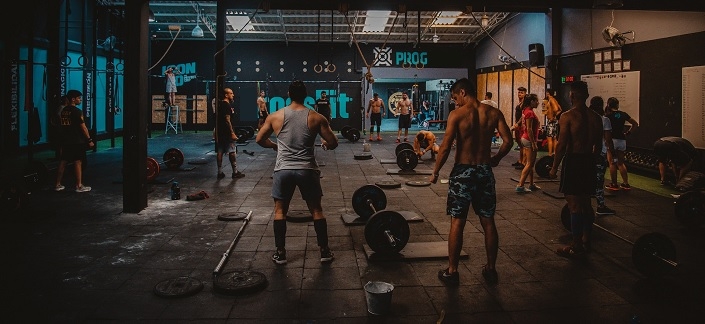Pre-Workout: Commonly Asked Questions

What does Pre-Workout do for you?
Pre-Workouts are designed to be supplemented before exercise to target a range of performance, body composition and aesthetic goals. While one pre-workout may focus energy and focus, another may target muscle pumps and blood flow. Though the majority of pre-workouts are available in power form, some come in liquid, capsule or tablet form.
Is Pre-Workout OK for beginners?
Pre-Workouts may be used by beginners, intermediates and advanced athletes. The type of pre-workout you choose should be determined by your caffeine tolerance and exercise objectives. For instance, you may not be used to using caffeinated products and require a caffeine-free or low caffeine content pre-workout. Additionally, exercise goals of fat loss and fitness will require a different pre-workout compared to someone focused solely on building muscle.
Is Pre-Workout just for Energy?
Most pre-workout supplements do aim to increase energy levels, however many other performance, fat-loss and aesthetic goals are targeted. While one pre-workout may be designed to promote strength and power, another may focus on muscle pumps, while yet another may support endurance exercise and hydration.

Is it OK to have Pre-Workout Every Day?
For most people, taking a pre-workout supplement daily is fine. However, this depends on your medical situation.
Does Pre-Workout burn fat?
Most pre-workouts contain stimulants, such as caffeine, which increase the metabolic rate by increasing sympathetic nervous system activity. Stimulant-Free pre-workout supplements may not necessarily burn-fat unless they contain ingredients specifically for that purpose, such as L-Carnitine or Green Tea.
Is Pre-Workout Best on an empty Stomach?
Yes, pre-workout is best taken on an empty stomach to ensure the most rapid and complete absorption of the active ingredients. It is often best to exercise on an empty stomach anyway, as food in the stomach can result in impaired performance and nausea.
How Long does Pre-Workout take to kick in?
Take your pre-workout 20-30 minutes before exercise to allow the ingredients time to absorb. This means you will be exercising slightly before the caffeine is completely absorbed, which taken 30-45 minutes. This time difference accounts for the fact that during exercise your caffeine levels will be decreasing once they reach their peak. These time ranges are based on the Caffeine absorption research of Arnaud MY and Ligouri A et al.
References
Arnaud MJ. 1987. The pharmacology of caffeine. Prog Drug Res 31:273–313.
Liguori A, Huges JR, Grass JA. 1997. Absorption and subjective effects of caffeine from coffee, cola, and capsules. Pharmacol Biochem Behav 58:721–726

How Long does Pre-workout Last?
For pre-workout supplements containing caffeine, the lasting effects of the stimulants vary considerably from person to person, from 1.5 hours to 9.5 hours. Typically, factors that would increase the lasting effects of caffeine would be larger dose consumed, a lower daily total caffeine intake and a lower bodyweight.
The many other active ingredients in pre-workout supplements, such Citrulline or Beta-Alanine, each have their own separate effects. When taken daily over an extended period of time, the biological effects of many of these ingredients may be on-going.
For instance, creatine levels take 4-6 weeks to return to normal levels when supplementation is stopped. When supplemented daily in a pre-workout, your muscle free creatine and phosphocreatine levels may never return to normal. This indicates an on-going ergogenic benefit for some active ingredients (to some degree), regardless as to when the pre-workout is taken, as long as it is taken daily.
What Happens if I take Pre-Workout but don’t Workout?
If you take a caffeine-containing pre-workout and don’t workout, you will still experience the benefits of the stimulants, such as increased mental alertness and energy.
What’s Better: Coffee or Pre-Workout?
Though both coffee and pre-workout typically contain caffeine, coffee is a whole foods plant-based product while pre-workout is formulated from a range of ingredients. Coffee contains thousands of natural phytochemical and nutrients, such as chlorogenic acids, xanthine and thiamine. Coffee is one of the richest dietary sources of antioxidants and its regular daily consumption is associated with reductions in all-cause mortality.
Pre-Workouts offer caffeine, often as pure caffeine or caffeine anhydrous, in addition to a range of other ingredients to support some combination of performance, body composition and aesthetics. These ingredients may include amino acids, vitamins, minerals, phytochemicals and various other nutraceuticals.
Given the strong evidence of benefit from regular coffee drinking, it does not necessarily provide the benefits that people may be looking for when taken before exercise. Pre-Workouts contain unique nutrient profiles not found in coffee that may benefit exercise performance, body-composition and aesthetics.

What’s the Difference between Creatine and Pre-Workout?
Creatine is an ingredient often found in pre-workouts, though recent evidence suggests there may be more benefit from creatine when taken after exercise. As long as creatine is taken daily, this amino acid builds up in muscle providing an erogenic benefit, which is one of the benefits of pre-workouts.
Is Pre-Workout for Cardio or Weightlifting?
While most pre-workouts are designed for weightlifters and power athletes, some pre-workouts are targeted towards cardio and endurance. Regardless, caffeine-containing pre-workouts will promote motivation, mental alertness and energy for cardio and endurance training.
What Happens When You Stop Taking Pre-Workout?
If you have been using a caffeine-containing pre-workout for some time, reduce your pre-workout intake slowly. Stopping pre-workout immediately may lead to caffeine withdrawal symptoms, such as headache, fatigue, low mood and irritability.
Stopping a pre-workout that does not contain caffeine or stimulants of any kind is fine. However, over-time you may notice reduced performance or muscle fullness as a result.








